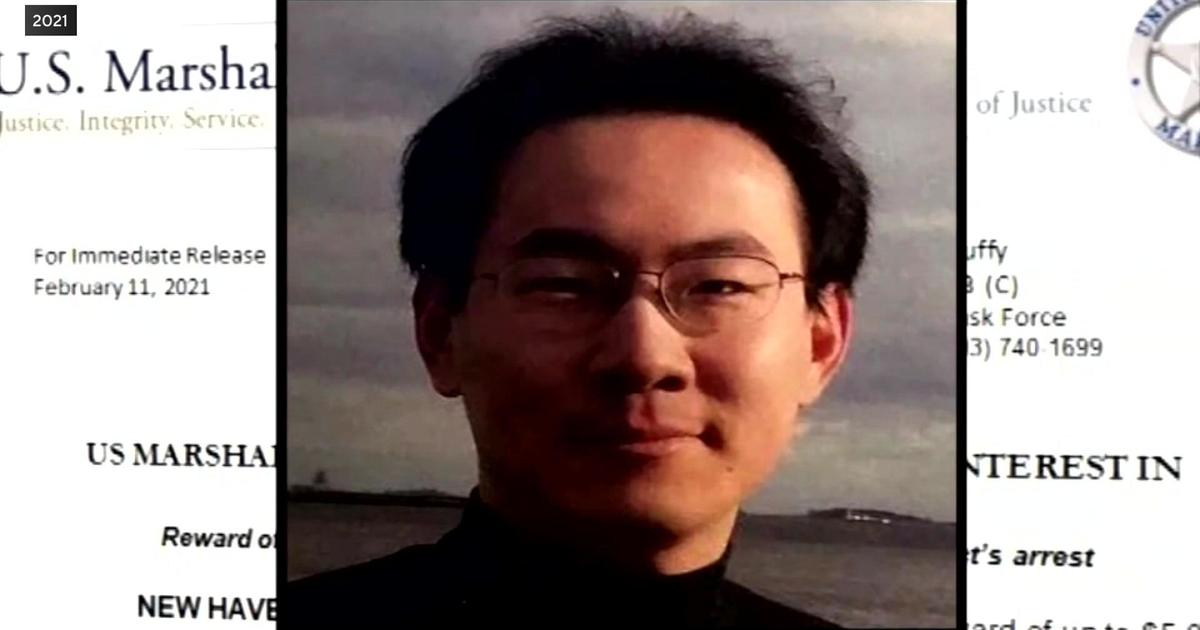Wesleyan University Orders On-Campus Fraternities To Admit Women
MIDDLETOWN, Conn. (CBSNewYork/AP) -- When you think of Greek life in college, it conjures up thoughts of brotherhood in fraternities and sisterhood in sororities.
Now Wesleyan University in Middletown plans to change a more-than-century-old tradition by ordering fraternities with on-campus houses to go coed, CBS 2's Emily Smith reported.
The school sent out a letter Monday to the university community saying: "We have decided that residential fraternities must become fully co-educational over the next three years. This change is something that Wesleyan and the fraternities have been contemplating for many years, and now the time has come."
The move follows lawsuits and fraternity incidents involving alleged rapes that led hundreds of students to sign a petition calling on the fraternities to start admitting women.
The goals are to reduce sexual assault and gender inequity.
At Iona College in New Rochelle, New York, many students seemed surprised by the idea of coed Greek organizations.
"I think it would change the whole dynamic of it," one woman said. "I mean, it's kind of all girls. You share different bonds and stuff. It would just be different with guys."
"I could see that working, being coed," said Spencer Duklos, who belongs to a fraternity at Iona and grew up near Wesleyan. "Not necessarily mine, but I would understand. I could accept a fraternity if they had women in it."
Iona does not have any plans to go coed with its fraternities.
Wesleyan follows Trinity College in Hartford, which began the transition starting in 2012, citing problems with drinking and drug use in Greek organizations. It also comes less than a month after Wesleyan closed the Beta Theta Pi fraternity house after a woman attending a party there was seriously injured after falling from a third-floor window.
But school spokeswoman Kate Carlisle said the changes are not a response to any one incident.
"This has been the subject of ongoing concern and discussion among the people in the administration, the school community, the alumni community and so forth for a number of years,'' she said.
Peter Smithhisler, the chief executive of the North-American Interfraternity Conference, said any school that dictates what type of organizations students can join is "inhibiting fundamental principles of freedom of expression and freedom of association upon which our country is premised and upon which it functions."
"It is essential that fraternities be allowed to decide for themselves if they wish to offer coed membership,'' said Smithhisler, whose trade association represents 74 male fraternities.
A number of other New England liberal arts colleges have also gone coed with fraternities. Middlebury College in Vermont and Colby College in Maine banned single-gender frats decades ago.
Wesleyan, a private liberal arts school, has about 2,900 undergraduate, and 200 graduate students. It is well known for its progressive student body and faculty, satirized under a pseudonym in the 1994 movie "P.C.U.," which was written by two former Wesleyan students.
The school has no residential sororities and just two active all-male residential fraternities -- Delta Kappa Epsilon and Psi Upsilon. Neither immediately responded to requests for comment.
Wesleyan has several nonresidential fraternities and one nonresidential sorority, Rho Epsilon that are not affected by the policy change. Another fraternity, Alpha Delta Phi, has been coeducational for several decades, Carlisle said. Roth was the president of that organization when he was a student at Wesleyan in the 1970s, Carlisle said.
Trinity's move also followed several high-profile incidents involving fraternities and a report that found increased drug and alcohol use among members of single-sex Greek organizations. That report also found those students had lower grades than the average Trinity student.
Trinity's response also requires students to have at least a 3.0 grade-point average to join a Greek organization and for the organizations to maintain a 3.0 average or higher as a group. The organizations also must contribute to the college through programming, service, philanthropy or some other social effort. The groups have until the fall of 2016 to comply.
"Progress to date has been focused on activities and programs that foster a co-educational environment," Trinity spokeswoman Kathy Andrews said in an email to The Associated Press. She said the college hopes its efforts "result in quantifiable progress."
You May Also Be Interested In These Stories
(TM and © Copyright 2014 CBS Radio Inc. and its relevant subsidiaries. CBS RADIO and EYE Logo TM and Copyright 2014 CBS Broadcasting Inc. Used under license. All Rights Reserved. This material may not be published, broadcast, rewritten, or redistributed. The Associated Press contributed to this report.)



